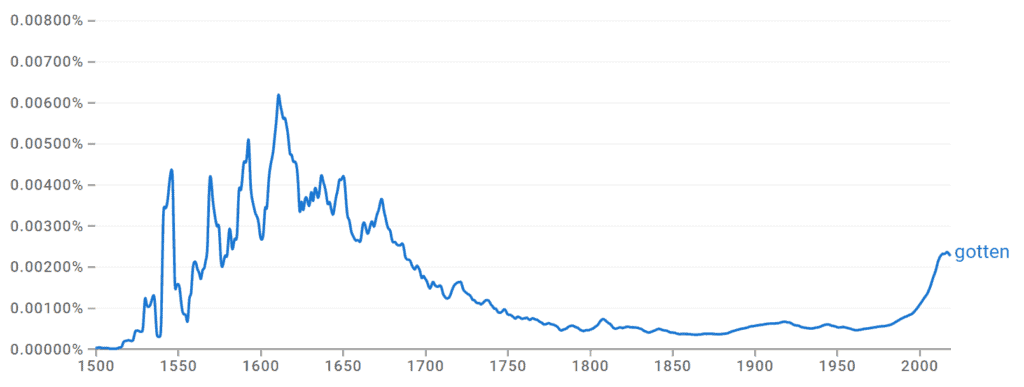Get is a common verb regularly used to help express possession of some variety. Like all verbs, it has a past participle form, which can cause some confusion among native English speakers, especially English Language Learners.
Got and gotten are both past tense conjugations of get, but which is correct, and what is their proper use? The answer is both are correct, but it is essential to understand the differences between the two.
Let’s take a closer look at these verb forms so you can better use them in your speech and writing.
The Difference Between Get, Got, and Gotten
The word get is a verb that has various meanings, and the word got is its simple past tense concerning the possessing, achieving, or affecting of something. Gotten is actually an older form of get and got, originally meaning to obtain or acquire something.
Is Gotten a Word?
Gotten very much is a word and is actually the origin of our modern use of get and got. Despite its British origins, gotten is more popularly used in American English today.
How to Use Get Correctly

The word get is a verb that has more than one meaning:
- Get can mean to gain possession of something.
For example:
- She will get a new schedule once she has her professor’s permission.
- Wyatt will get a new bike for his birthday since he outgrew his last one.
2. Get also means to succeed in attaining, achieving, or experiencing something.
For example:
- Emmett will get to attend the science summer camp as long as he achieves the grades required.
3. Finally, get means to become affected by something.
For example:
- You will get sick if you don’t start taking better care of yourself.
How to Use Got Correctly

Got is always the simple past tense of the word get, no matter how it is being used.
For example:
- Wyatt got a new bike for his birthday.
- Emmett got to attend the science summer camp since his grades were so good.
- She got sick because she wasn’t taking care of her health.
How to Use Gotten Correctly

The gotten form of conjugation is mistakenly believed to be of American origin and thus considered new or even inferior by British language standards. Despite its popularity within North America, gotten is actually an older form that derives from the Old English form get from the mid-14th century, meaning “obtained or acquired.”
It fell out of favor in British English by the 18th century. However, it was eventually picked up again on the other side of the Atlantic—hence its association with American English.
The vehemence of some Britons’ scorn for gotten likely has to do with the fact that it has gained ground in British English over the last couple of decades. Many English speakers from outside North America resist the encroachment of so-called Americanisms (many of which, like gotten, are not actually American in origin) on their versions of English. For mysterious reasons, some feel especially strongly about gotten.
For example:
- I have gotten behind in my work.
- The book was not easily gotten.
Let’s Review
Get is a verb that means to gain possession, succeed in attaining or achieving, or become affected by something. Its simple past tense conjugation is always got. However, if you are speaking (or writing) to an American audience, you can also use gotten in reference to having obtained or acquired something.
Once believed to be an Americanism, gotten is actually a much older form of conjugating the verb get—originating from the 14th century. Even though it fell out of popularity with the British due to its use in the colonies, that doesn’t make it a “new” version of explaining something that has been taken possession of or obtained.
Despite this, gotten is still much more popular to use with American English.

Comments are closed.